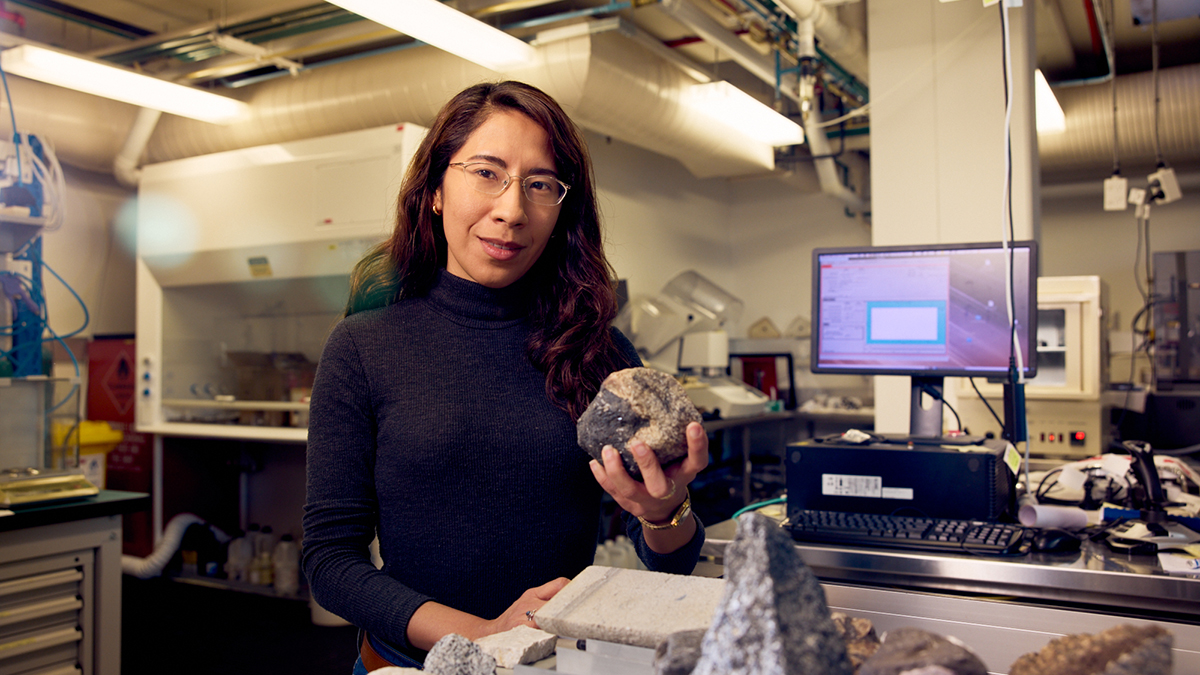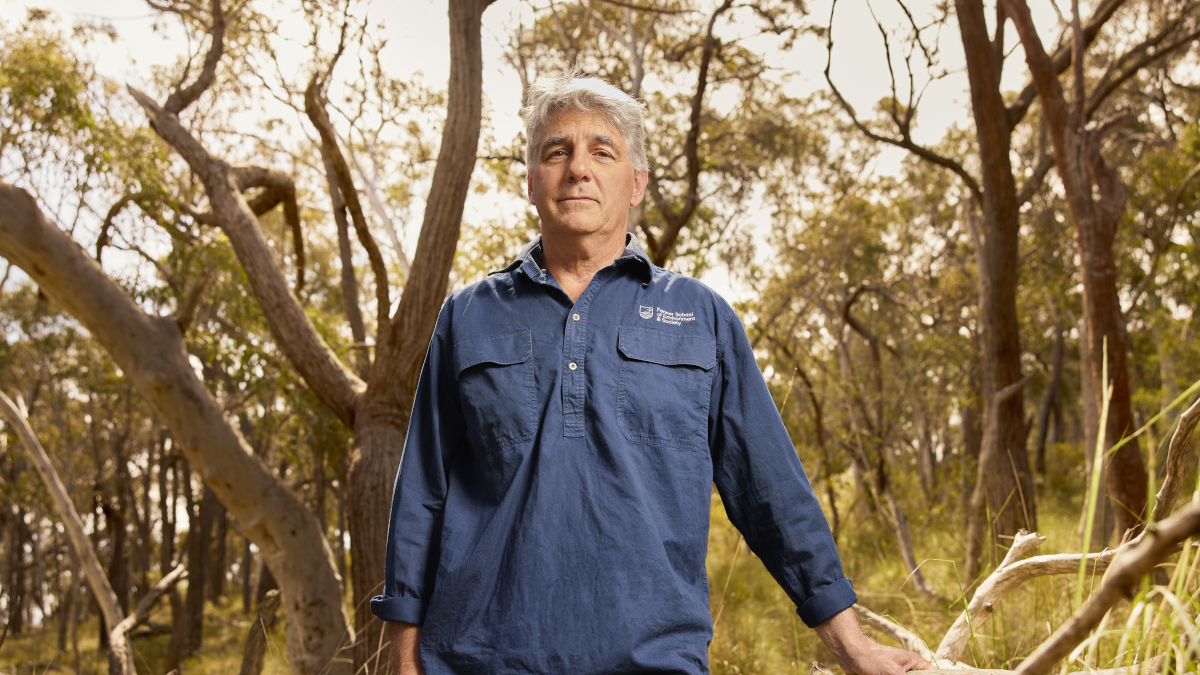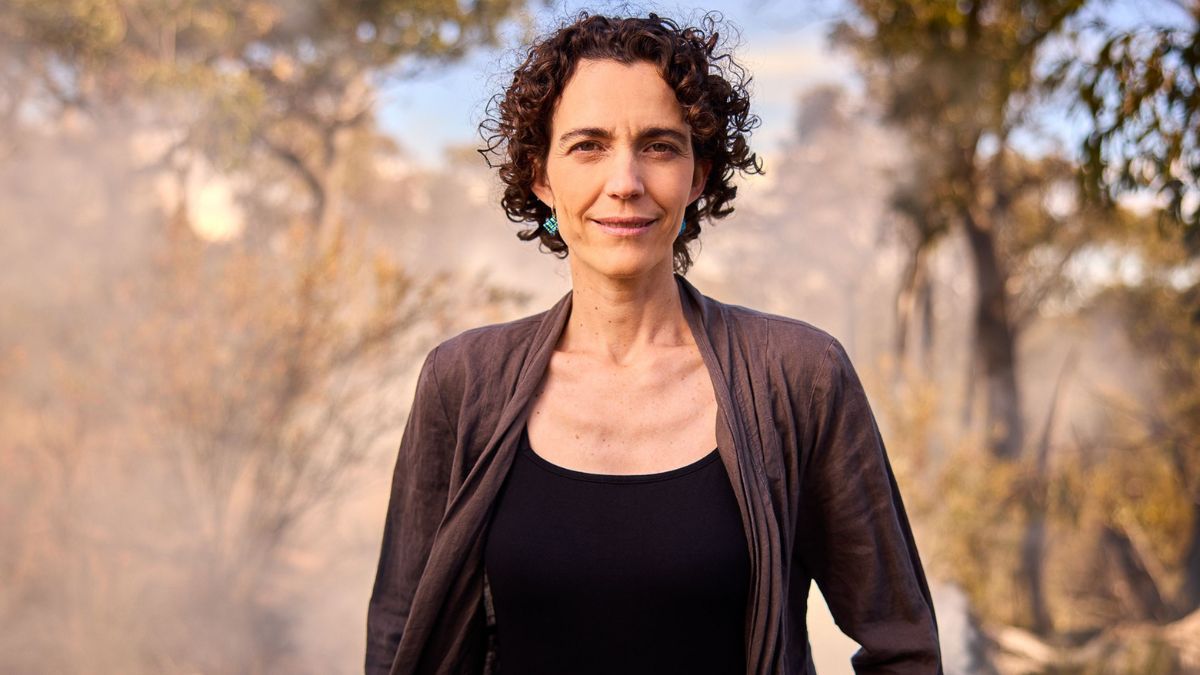
Published on
Amanda Laugesen: decoding how Australians speak, one word at a time
What can words tell you about culture, history and identity? For Associate Professor Amanda Laugesen, the answer is: everything.
As a historian and lexicographer, she’s spent her career tracing the evolution of Australian English — the words we invent, borrow and bicker over — and what they reveal about us.
Amanda is director of the Australian National Dictionary Centre at the Australian National University (ANU) and chief editor of the ‘Australian National Dictionary: Australian Words and Their Origins’. Her latest book, ‘Australia in 100 Words’ (NewSouth, 2024), explores the language that has shaped how Australians speak, think about and see the world.
She also advises on th Commonwealth Style Manual and teaches ANU students the ins and outs of dictionary-making and writing for publication, sharing her deep curiosity about how language works and why it matters.
In simple terms, describe what you do.
As chief editor of the Australian National Dictionary, my job is to research the Australian English vocabulary. We research the words and expressions that are uniquely Australian, more used here than elsewhere, or that have special significance to Australia.
We are always on the lookout for new words. So I spend a lot of time researching words, editing entries, talking about Australian English and thinking about language and culture. I also teach at the University and am currently completing a dictionary of Australian Second World War language, along with working on several different research projects, including a history of Australian women and their use of slang.
What's a typical day in your life look like?
Very busy! There is always work to do on the dictionary because it never ends. Still, I might also be researching and writing something for publication, giving media interviews, teaching and dealing with students, and/or answering emails and dealing with administrative tasks.

Amanda dissects the words we use every day—the ones that shape our thinking without us even realising.
What's something about your work or field that you find fascinating?
There is always something new to discover – new words and stories to research and write about.
I think of myself as a historian first and foremost and my history training informs my work on the dictionary. My job is never boring. Understanding our past and present through language is central to my work.
Who inspires you?
My colleagues – both at ANU and elsewhere – who are committed to not only teaching to the very best of their ability but also producing ground-breaking, meaningful work that changes the ways in which we understand the world around us and is vital for the civil, informed and inclusive society that we all want to live in.
What are some things about you that people might be surprised to learn?
This might not be surprising, but I have some very nerdy hobbies including stamp collecting and knitting. I am also partial to watching a bit of reality TV now and then (strictly for listening out for new words!).
What's one lesson you've learned throughout your career?
Somebody once told me, and I’ve found it helpful, that by saying no to something, you can allow someone else an opportunity.
You don’t have to take on everything yourself and in fact, saying no may give others a chance to do something they might not otherwise get the opportunity to do. (Although I still find it hard to say no).
What do you find more rewarding about being a part of an academic research community at ANU?
Being part of a community with similar values and a similar passion for knowledge is a privilege.
What's one thing you always make time for, no matter how busy life gets?
Reading (not for work) is a priority – books have always been my sanctuary. Also, my dogs are in charge in my house. They must get their walk every day.
What do you think makes ANU unique?
Our beautiful campus – and the ducks!
What's one piece of advice you'd give to future students who are just about to embark on their university journey?
It is an absolute privilege and joy to immerse yourself in learning new things and discovering new ideas and knowledge. Enjoy it!



